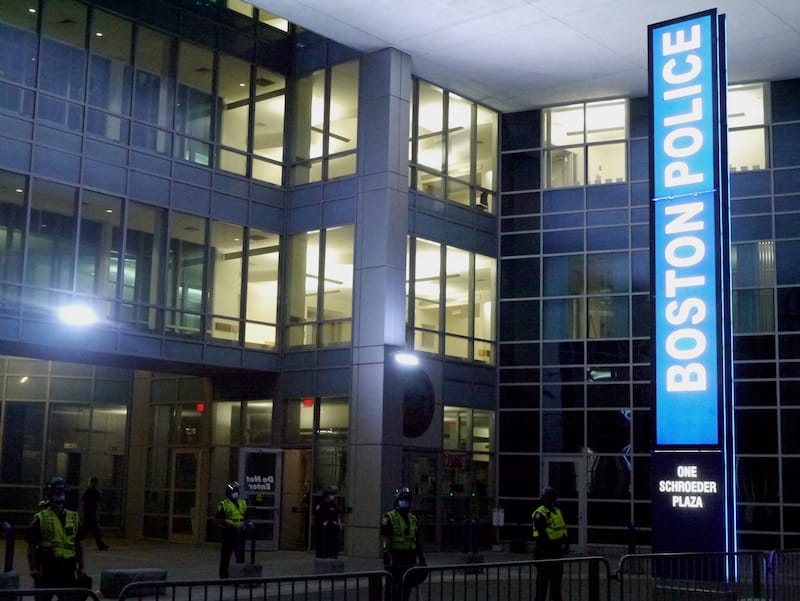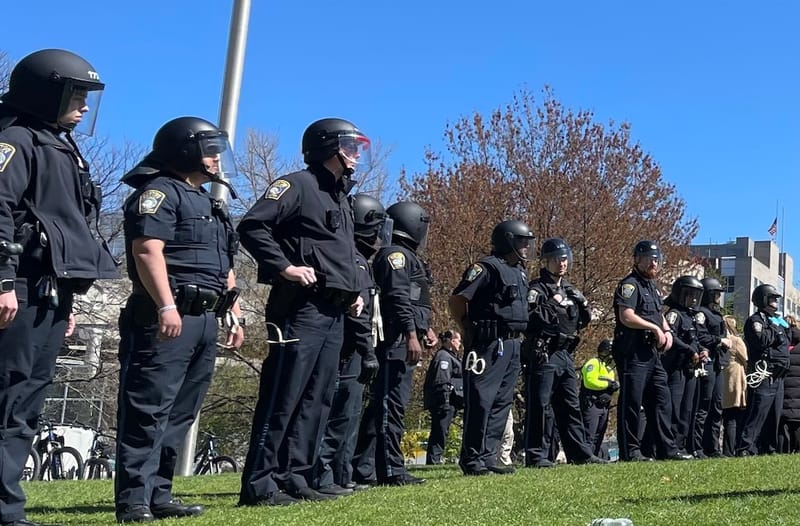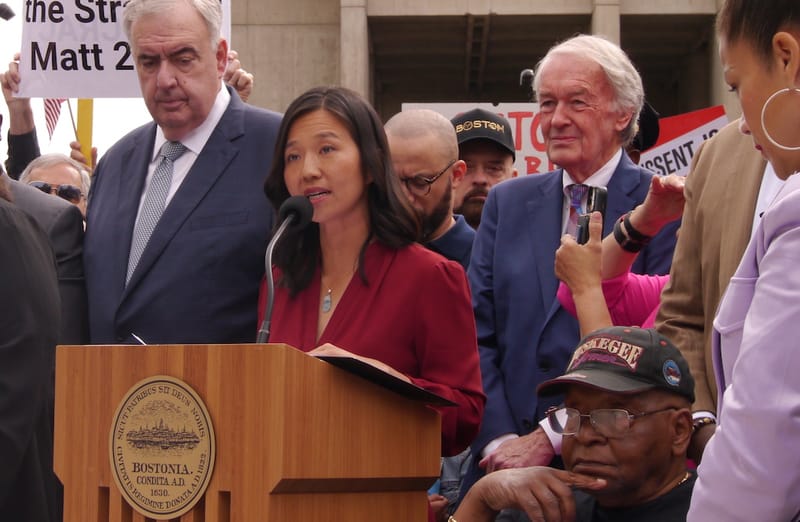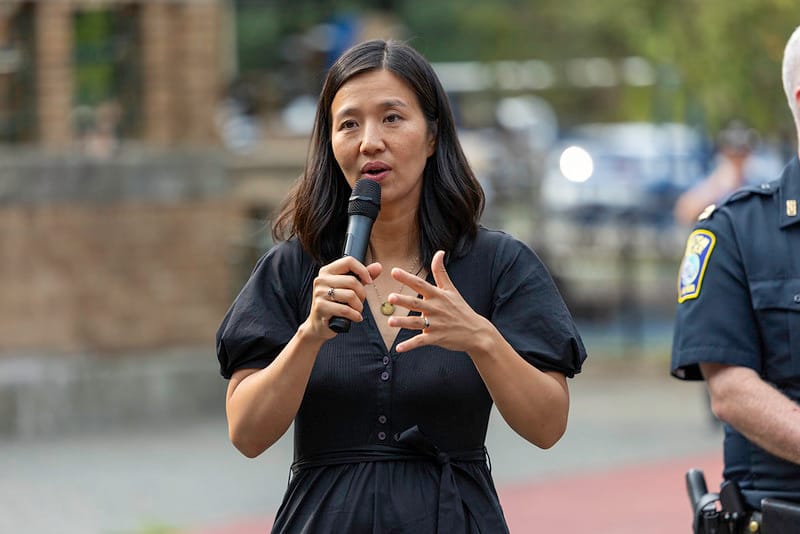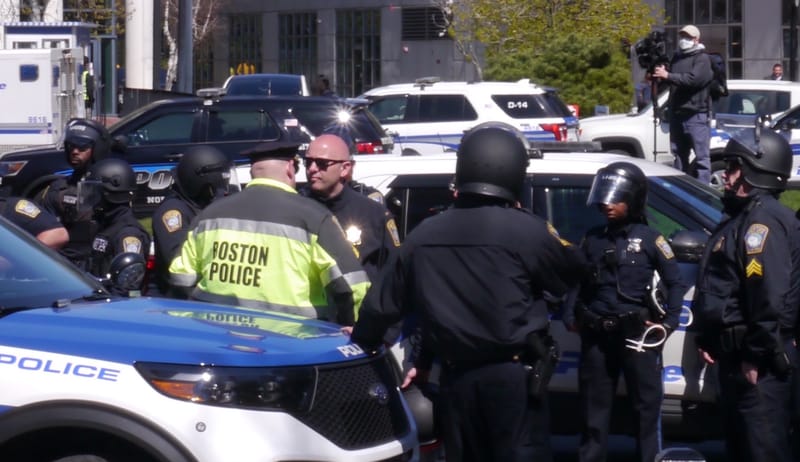Feds demand local law enforcement cooperate with ICE
Advocates say the city’s increasing reliance of federal funding for law enforcement is coming into conflict with the Trust Act, which limits police cooperation with ICE.
The City of Boston adopted the Trust Act in 2015, barring local police from cooperating with federal immigration authorities’ efforts to detain or deport immigrants who have not committed criminal offenses.
Now advocates say the city’s increasing reliance of federal funding for law enforcement is coming into conflict with the Trust Act. Boston and other members of the Metro Boston Homeland Security Region — Brookline, Cambridge, Chelsea, Everett, Quincy, Revere, Somerville and Winthrop — on Thursday voted to apply for $13 million in funding through an Urban Areas Security Initiative (UASI) grant, despite a stipulation in the grant that the receiving entities use at least 10% of the funding on “supporting collaboration between state and local law enforcement and U.S. Immigration and Customs Enforcement (ICE).”
The grant application specifies that participating municipalities participate in the 287(g) program “to identify and remove individuals who pose a threat to public safety and national security.”
Given that Boston and many of the cities in its cohort have laws on the books forbidding cooperation with ICE, it’s curious that representatives of the public safety services in the cities are applying for the grant, says Muslim Justice League Executive Director Fatema Ahmad.
“This crosses a line for multiple cities,” she said.
During the Thursday meeting of the Metro Boston Homeland Security Region’s meeting, Brookline Fire Department Chief John Sullivan acknowledged the tension between the grant’s requirements and the Town of Brookline’s ban on cooperation with ICE on civil matters.
"Our bylaws will specifically not allow us to comply with that with ICE,” he said. “There’s no way I can give a jurisdictional allocation in any way, shape or form to meet that 10%.”
But, he added, because the grant would go to the Boston Regional Intelligence Center (BRIC), police in the individual towns would not have to enter into agreements with ICE.
“If it’s all coming out of the BRIC, then that’s a Boston problem,” he said.
The BRIC is a so-called fusion center, set up by the Department of Homeland Security in the wake of the Sept. 11, 2001 attacks on the World Trade Center and Pentagon to better coordinate information sharing between federal authorities and local law enforcement. In practice, the fusion centers across the country have often failed to live up to their promise of fighting terrorism. In the case of the 2013 Boston Marathon bombing, the FBI had received notification from Russian intelligence in 2011 that Temerlan Tsarnaev was involved in terrorism but never relayed that information to Boston or Watertown police.
Critics point out that the BRIC has devoted resources to surveilling local protest movements against police brutality, the Occupy Wall Street demonstrations and events such as the Palestinian Film Festival.
BRIC’s efficacy aside, activists are concerned about information sharing with federal immigration authorities. Although Boston Police are barred from coordinating with ICE actions aimed at deporting people without criminal offenses, through BRIC officers produce reports on activities such as nonviolent protests that activists say ICE can access through the reports BRIC produces.
“The city needs much stronger safeguards than it has to make sure information is not getting passed along to ICE,” said Jonathan Cohn, policy director for Progressive Mass. “The best way to make sure information is not getting passed along to ICE is to not collaborate.”
Ahmad agrees.
“As long as they have this fusion center and participate in federal task forces, their information will get to federal agencies, including ICE,” she said.


